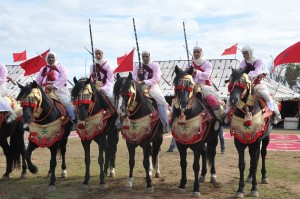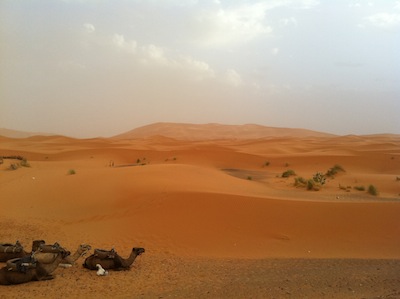How does the Ramadan fast affect tourists traveling to the Imperial Cities, the Sahara Desert and other regions of Morocco during this high holy holiday? Can tourists eat or drink in public during Ramadan? This article should clear up the confusion on this issue for tourists, to explain the most polite solutions for tourist behavior at this time, and to assure tourists that there is no problem with them visiting Morocco during Ramadan. Because the Islamic calendar is lunar, holidays such as Ramadan advance by approximately ten days with each subsequent year. This means that Ramadan makes a cycle through the entire calendar of twelve months each twenty-some years. This year, Ramadan started on August 12th, 2010 in Morocco. The fast presently starts in Morocco at approximately 4:30 AM, and ends in the evening at approximately 7:30 PM.






